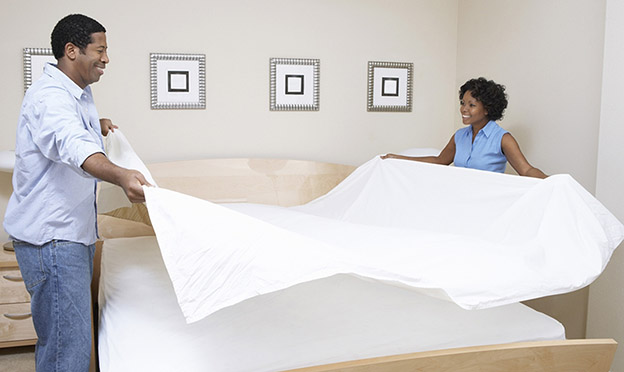I recently came across a graduation speech which made me evaluate some of my current daily habits and the motivations behind them. This speech was by Admiral William H. McRaven at The University of Texas graduation. The speech started with the idea of:
“If you want to change the world, start off by making your bed.”
Wait. What does making my bed have to do with changing the world?
My bed:
- Is not going with me into my busy day
- Will still be there when I return home
- And when I go back to sleep, it will be a mess again anyway!
After several days of reflection, I decided to start making my bed. I too wanted to be a force for change in the world. The first few days did not feel much different. Making my bed meant waking up a few minutes early, which had me feeling a little annoyed. However, as Admiral McRaven suggested, making my bed did start to “reinforce the fact that little things in life matter.” I started noticing how often we overlook the small steps we need to take, and how those small decisions can make a significant impact over the long run. Washing my plate after a meal did not take more than a minute, but if not done for a few days, the dishes stack up. Washing one load of laundry does not take too long, and can even be done while watching TV, but several loads of laundry can be exhausting.
A popular goal that many people set at the beginning of the year is weight loss. This tends to include changes such as cutting unhealthy snacks, drinking more water, exercising, and more. We tend to start off strong, but within a month or two, gym memberships continue to receive our monetary support but not our presence. We know that two basic rules are to eat nutrient-rich meals and increase our physical activity. We miss one day…which turns into two days…then a week…a month…and next thing we know, it is time to make the resolution again! Failing to be perfect is not a flaw, it is human nature. Admiral McRaven’s words encourage us to be resilient enough to get over our failures “and keep moving forward.”
Why are we talking about habits when I provide a counseling service? One skill that therapy can help build is the ability to regulate our emotions. Those that struggle with regulating emotions must undergo a deliberate and arduous process that ultimately leads to recovery. Avoiding what feels uncomfortable is the easier choice, but in order allow ourselves to heal, we must choose to take the more difficult path.
Accomplishing large goals is achievable if we first master the small tasks on which they are built. No task is too small to undertake if it is done right and moves us toward our goals. Enriching our own lives could start with something as mundane as making our beds.

